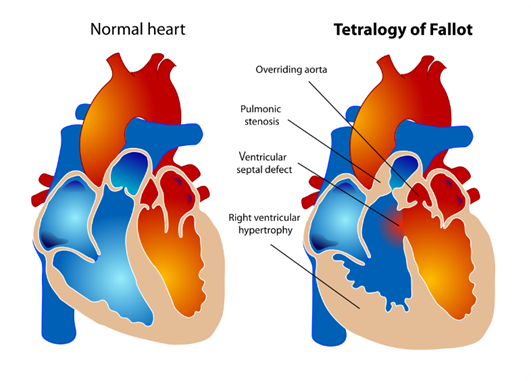A nurse is caring for an 8-month-old child who starts to cry when his parents leave. The nurse should make which of the following statements to the parents?
"At this age you should expect your child to be upset when you leave."
"Your child needs to rest."
will notify the provider of his behavior."
"Your child is responding to an overstimulating environment."
The Correct Answer is A
A. "At this age you should expect your child to be upset when you leave.": This statement provides normalcy to the parents' experience and reassures them that their child's reaction is typical for his age. It acknowledges the child's developmental stage and separation anxiety, helping to alleviate parental concerns.
B. "Your child needs to rest.": While rest is important for infants, this statement does not address the child's emotional needs or the parents' concerns about leaving their child. It may also minimize the significance of the child's distress.
C. "I will notify the provider of his behavior.": Notifying the healthcare provider may be appropriate if the child's distress continues or if there are concerns about the child's well-being, but this statement does not directly address the parents' concerns or provide guidance on how to manage the situation.
D. "Your child is responding to an overstimulating environment.": This statement suggests a possible cause for the child's distress but does not provide guidance or reassurance to the parents on how to address the situation or manage their child's reaction.
Nursing Test Bank
Naxlex Comprehensive Predictor Exams
Related Questions
Correct Answer is A
Explanation
A. Drink eight glasses of fluid daily: This is crucial advice for patients with sickle cell anemia, as adequate hydration helps prevent sickling of red blood cells and reduces the risk of vaso-occlusive crises. Therefore, this precaution is appropriate and should be included in discharge teaching.
B. Maintain an updated Haemophilus influenzae type b (Hib) immunization: While vaccination is essential for overall health, maintaining Hib immunization is not directly related to sickle cell anemia or vaso-occlusive crises. However, it's still important for the child's general well-being and should be addressed but may not be the priority in discharge teaching for sickle cell anemia.
C. Avoid playground activities at school: Children with sickle cell anemia are at risk of vaso-occlusive crises triggered by dehydration, fatigue, or extreme physical exertion. While playground activities can be strenuous, completely avoiding them may not be necessary. Instead, the child should be educated on the importance of staying hydrated, taking breaks when needed, and avoiding excessive physical strain.
D. Assume postural drainage positions every 6 hours: Postural drainage is not typically indicated for sickle cell anemia or vaso-occlusive crises unless there are specific respiratory complications. This precaution is not relevant to the management of sickle cell anemia and should not be included in discharge teaching for this condition.
Correct Answer is C
Explanation
A. Overriding aorta: In Tetralogy of Fallot, the aorta is positioned over the ventricular septal defect (VSD), rather than solely over the left ventricle as it would be in a normal heart. This is called overriding aorta, which allows blood from both the right and left ventricles to enter the aorta.
B. Pulmonary stenosis: This is a critical component of Tetralogy of Fallot. Pulmonary stenosis refers to narrowing of the pulmonary valve or the area just below it, which restricts blood flow from the right ventricle to the pulmonary artery. This results in decreased blood flow to the lungs for oxygenation.
C. Left ventricular hypertrophy: This choice is not typically associated with Tetralogy of Fallot. Left ventricular hypertrophy refers to an enlargement or thickening of the muscular wall of the left ventricle of the heart. It is often seen in conditions where the left ventricle has to work harder to pump blood, such as in hypertension or aortic stenosis, but it is not a characteristic feature of Tetralogy of Fallot.
D. Ventricular septal defect: This defect is one of the four components of Tetralogy of Fallot. A ventricular septal defect (VSD) is a hole in the septum, the muscular wall that separates the left and right ventricles of the heart. In Tetralogy of Fallot, the VSD allows oxygen-poor blood from the right ventricle to flow directly into the left ventricle and out to the body.

Whether you are a student looking to ace your exams or a practicing nurse seeking to enhance your expertise , our nursing education contents will empower you with the confidence and competence to make a difference in the lives of patients and become a respected leader in the healthcare field.
Visit Naxlex, invest in your future and unlock endless possibilities with our unparalleled nursing education contents today
Report Wrong Answer on the Current Question
Do you disagree with the answer? If yes, what is your expected answer? Explain.
Kindly be descriptive with the issue you are facing.
